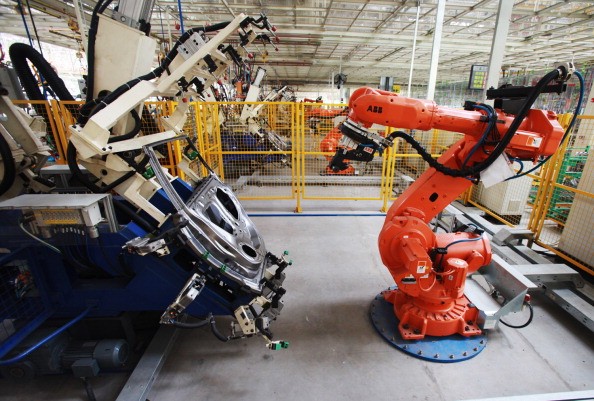Chinese companies are now leaning toward automation as the country's working age population dwindles if only to maintain the expected production rate the nation has previously offered.
China's population is rapidly aging and, with no other choice, many manufacturing firms in the country are beginning to rely on artificially intelligent machines to solve the problem.
But while they may provide great potential in the manufacturing industry, people should still not rely too much on robots especially if it means that the future for the Chinese workforce would become bleaker.
Chinese Automated Workforce
In China, people see robots serving customers in restaurants and in manufacturing plants because they speed up the time of production and minimize if not remove chances of error.
But the dwindling number of Chinese people fit to work is continuously dropping and some companies are beginning to turn to automation.
Proof of this is the sudden increase in orders of robots that could hit as high as 150,000 robots by 2018 per a Wall Street Journal report.
Because China is one of the biggest manufacturing countries in the world, the mere idea of losing to other nations because of consequences of sudden population control got Chinese firms worried.
"China is saying, 'we have to roboticize our industry in order to keep it,'" explained Robotics Division Chairman Stefan Lampa of the German robot manufacturer Kuka AG.
Why Chine Chooses Robots
Aside from the fact that the number of China's workers is rapidly declining, industry experts believe that there are other reasons why companies in the country are looking to make their production automated.
Similar to the situation in the fresh produce industry, manufacturers also want "precision and flexibility," according to an article in a website called And Now You Know.
Such characteristics of robots added to the fact that they can be a lot cheaper compared to human workforce and do not need any sick leave, social insurances, and other humanitarian benefits can be quite tempting.
"They cost less and take up less space. And they're far easier to manage. Workers get sick. They have down days. They make mistakes. Robots can work 24 hours a day and always finish the job on time," Ying Ao Kitchen Utensils Deputy Manager Chen Conghan told CBC Canada.
According to Chen, employees are now demanding higher pay even though they have minimal skills related to the job which returns us to the fact that the country is now suffering from an aging population.
"It's becoming harder and harder to recruit workers and to keep them. This work is intense and tiring, so we have to pay people more and more to lure them and keep them," Chen added.



























